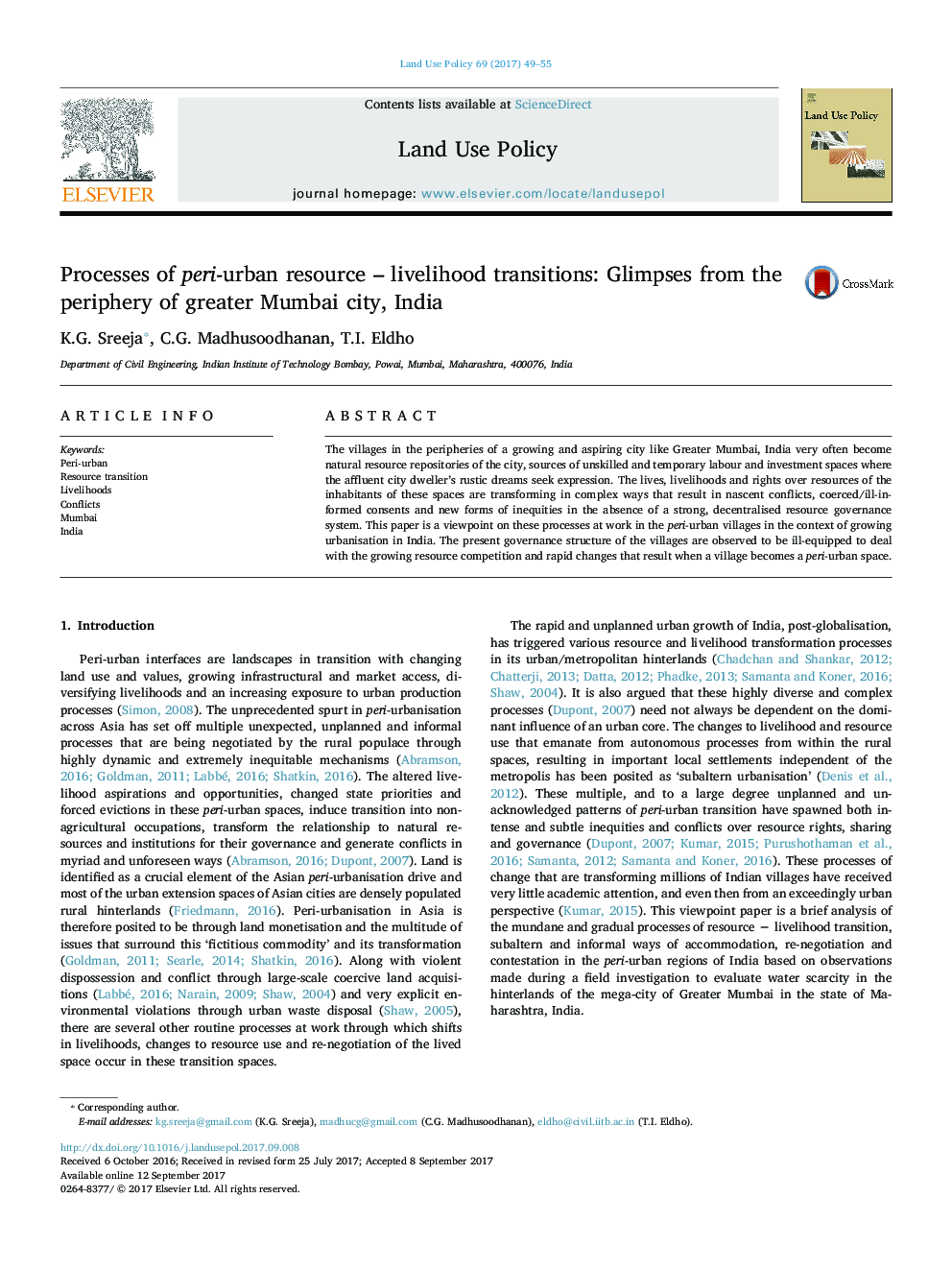| Article ID | Journal | Published Year | Pages | File Type |
|---|---|---|---|---|
| 6460319 | Land Use Policy | 2017 | 7 Pages |
â¢Resource and livelihood transitions are complexly entwined in peri-urban villages.â¢Water scarcity in Mumbai peri-urban spaces is linked to land-livelihood transitions.â¢Routine processes of transition lead to a gradual erosion of land and water rights.â¢Existing resource governance mechanisms in the peri-urban regions are weak and inept.
The villages in the peripheries of a growing and aspiring city like Greater Mumbai, India very often become natural resource repositories of the city, sources of unskilled and temporary labour and investment spaces where the affluent city dweller's rustic dreams seek expression. The lives, livelihoods and rights over resources of the inhabitants of these spaces are transforming in complex ways that result in nascent conflicts, coerced/ill-informed consents and new forms of inequities in the absence of a strong, decentralised resource governance system. This paper is a viewpoint on these processes at work in the peri-urban villages in the context of growing urbanisation in India. The present governance structure of the villages are observed to be ill-equipped to deal with the growing resource competition and rapid changes that result when a village becomes a peri-urban space.
